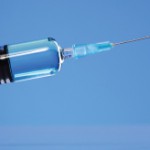
Long COVID
What is it?
Much like Chick V, the virus which causes COVID 19, SARS -CoV-2- can leave longer lasting symptoms in about 10% of people. We say these “post acute” Covid symptoms are symptoms going on longer than three weeks after the start of symptoms. The symptoms can last for months, up to 12 weeks. (Then known as “Chronic Covid” ) People suffering with Long Covid are not necessarily still infectious.
Common symptoms include Fatigue, breathlessness, cough, low grade fever, muscle pain and headaches as well as depression. These can come and go.
We are not entirely sure what causes the prolonged symptoms but it is likely to be multifactorial. Long lasting symptoms after an infection are not unique to COVID 19.. ,Many viruses can cause chronic fatigue, for example and many can cause a post infectious Immune or inflammatory response which can affect many organs including the lungs, brain, muscles/joints or nerves. There is also likely to be a Psychological component also.
What should you do if you have ongoing symptoms?
See your doctor for an examination and if appropriate some baseline Investigations to rule out secondary causes for your symptoms/complications of COVID 19. For example your doctor may need to rule out: Anaemia, secondary pneumonia/chest infections requiring antibiotics.; inflammation of the heart or also even heart failure in severe cases. If you were hospitalized and are breathless they may also want to rule out a clot in the lung for example.
Once these have been excluded, rest, limitation of caffeine, monitoring of oxygen levels where appropriate, and possibly graded exercise therapy, and psychological support can help people feel better.
For fatigue, once your doctor has said it is ok, then 4-6 weeks of self paced light exercise such as walking can help.
When is it generally safe to return to exercise?
If you were reasonably active before COVID 19, then after mild illness – try one one week of stretching before attempting light cardiovascular exercise such as walking. Increase your rest periods if you get tired in between.
If anyone has been hospitalized, or required oxygen they should see their one doctor for an individualized assessment.
Patients who had heart involvement need a cardiac assessment with Blood pressure, pulse, ECG pulse oximetry and review with doctor before resuming exercise.
If you are allowed to exercise, then usually light graded exercises, over 4-6 weeks helps people to recover from the fatigue, brain fog and depression that can follow COVID 19.
Psychological Support can help especially if you are suffering with depression, the death of a loved one or the loss of a job or income.
Peer-peer support groups have been known to be helpful. Perhaps consider starting one on Facebook?
Fever usually responds to paracetamol, although as I mentioned above see doctor to r/o secondary infection.
The good news is that if you are kind to yourself, and allow rest and positive thoughts, most people recover slowly with the above measures…hopefully by 12 weeks or so!
Here are some helpful links:
How to conserve your energy – RCOT
Long Covid Support Group | Facebook
|


